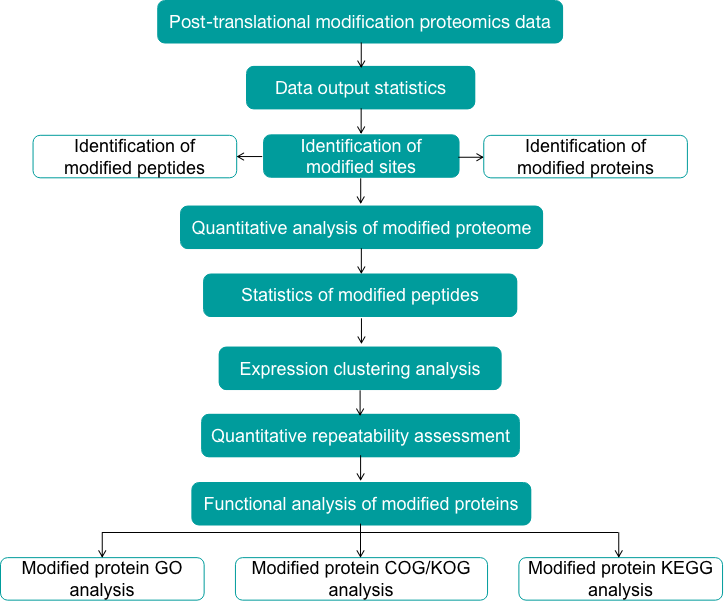Venom Protein Modification Analysis
Creative Proteomics relies on years of experience in proteomics bioinformatics analysis to provide customers with different types of post-translational modification proteomics data analysis services. The post-translational modification proteomics data analysis we provide is suitable for different types of poisonous species or venom research. Such as snakes, scorpions, frogs, venomous lizard, fire-bellied toads, snails, spiders, bees, ants, cone snails, jellyfish, etc.
Introduction

As a natural animal toxin protein, the venom of poisonous species in nature contains a variety of enzymes, non-enzymatic proteins and other small molecule proteins, and has a wide range of biological activities and pharmacological effects. Venom protein needs to undergo a series of post-translational processing and modification to form the final complex functional executive body-venom. A variety of post-translational modifications (PTM) have been discovered, involving different modified enzyme systems. These post-translational modifications have a certain impact on the structure and function of the venom.
With the maturity of proteomics research technology, post-translational modification proteomics methods are widely used in venom research. Common protein post-translational modification includes Phosphorylation, Disulfide bond, γ-carboxylation, Acetylation, Glycosylation, Ubiquitination, etc. Using bioinformatics methods to analyze the post-translational modification omics data of different venom proteins to detect the modification sites of the target protein. The identification analysis and quantitative analysis of modified proteins of venom provide a data basis for studying the relationship between dynamic changes of venom modified proteome and changes of venom phenotype.
Common Functions of Various PTMs
| PTMs category | Common Functions |
|---|
| Phosphorylation | Change protein form, activate or deactivate catalytic activity |
| Methylation | Affect the composition of proteins and their affinity for other proteins |
| Acetylation | Affect protein configuration and its affinity for other proteins |
| Ubiquitination | Degradation of target protein |
| Glycosylation | Direct the protein to the destination |
Creative Proteomics Technical Route
The venom protein post-translational modification data analysis services provided by Creative Proteomics, has undergone scientific and meticulous design and strict quality control at every step to ensure high-quality research results. The following figure shows the general pipeline of Creative Proteomics' venom protein post-translational modification bioinformatics data analysis:
 Fig 1. Venom protein post-translational modification data analysis pipeline - Creative Proteomics.
Fig 1. Venom protein post-translational modification data analysis pipeline - Creative Proteomics.
Analysis Content
In addition to providing general data analysis content, Creative Proteomics also provides customized analysis based on customer needs. Designed to help researchers to mine effective venom protein post-translational modification information to the maximum extent.
| Standard analysis content | Raw data processing - Post-translational modification proteomics data output statistics.
- Identification of venom protein modification sites.
Identification of venom protein modified peptides and modified proteins: - Quantitative analysis of venom protein modified proteome.
- Statistics of differentially modified peptides (the full spectrum of protein phosphorylation is not applicable).
- Expression clustering of differentially modified peptides (the full spectrum of protein phosphorylation is not applicable).
- Quantitative repeatability assessment (only for experiments that are designed to repeat).
Functional analysis of modified proteins: - Modified protein GO annotation.
- Modified protein COG annotation.
- Modified protein pathway metabolic pathway annotation.
- GO enrichment analysis of differentially modified proteins (the full spectrum of protein phosphorylation is not applicable).
- KEGG pathway enrichment analysis of differentially modified proteins (the full spectrum of protein phosphorylation is not applicable).
|
| Customized information analysis | The content of customized information analysis can be determined through negotiation based on the customer's data analysis needs. Such as phosphorylation site motif analysis. |
Creative Proteomics, as a rare professional venomics research service provider in the world, relies on its years of bioinformatics data analysis experience to provide customers with one-stop venom protein post-translational modification data analyss services. In addition to bioinformatics data analysis, we also provide venom post-translational modification studies services for researchers. If you have any questions about our service, please feel free to contact us immediately.
For research use only. Not intended for any clinical use.


 Fig 1. Venom protein post-translational modification data analysis pipeline - Creative Proteomics.
Fig 1. Venom protein post-translational modification data analysis pipeline - Creative Proteomics.